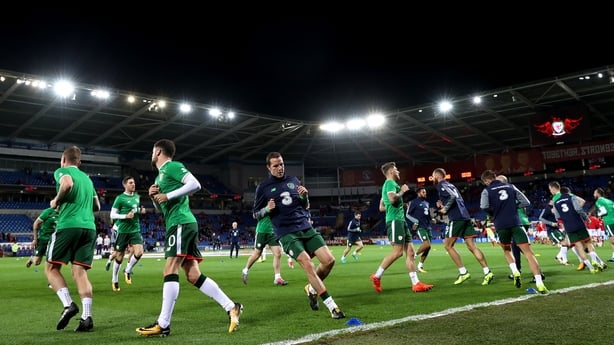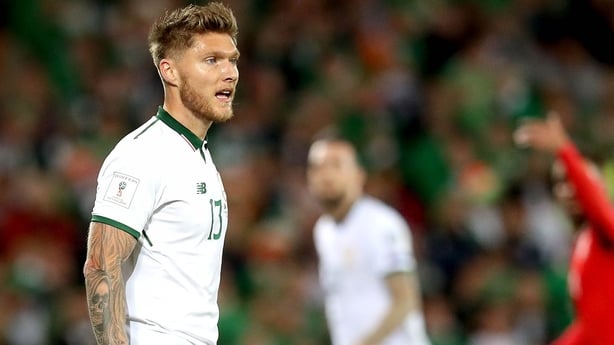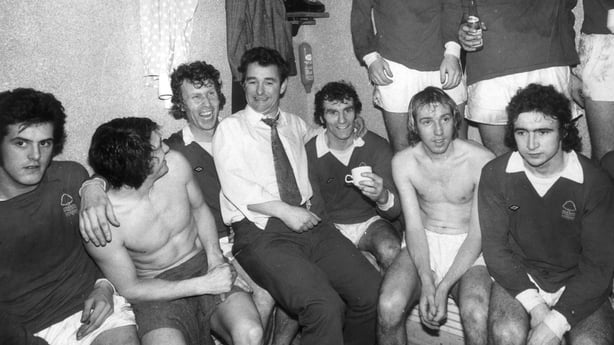Martin O’Neill has verbally agreed a two-year extension to his contract as Republic of Ireland manager.
Similar to the Derry man’s last renewal, agreed before the Euros but not finalised until that September, the new deal announced last month has not yet been signed.
If Ireland are going to continue to try and win games without the ball, it might be best for all concerned if he doesn’t.
This is not simply an emotional response to Tuesday’s Aviva annihilation.
Yes, Ireland lost 5-1 to Denmark in what was our worst result at home since the 6-1 humbling by Germany that spelled the end for Giovanni Trapattoni.
However, they could easily have gone 2-0 up when Daryl Murphy hit the side-netting and the final score would have been very different.
We need your consent to load this Facebook contentWe use Facebook to manage extra content that can set cookies on your device and collect data about your activity. Please review their details and accept them to load the content.Manage Preferences
O’Neill certainly made matters worse by making the baffling decision to take off two defensive midfielders when Wes Hoolahan and Aiden McGeady came on.
That opened up the space for Christian Eriksen to run riot, something Danish manager Age Hareide cheekily thanked us for after the match.
But at least he went for it. At 2-1 down and needing to score twice it was better to have a go and die with our boots on than limp out.
So the argument against him staying on is not solely based on Tuesday’s horror show, painful as it was.
The argument is that the crude tactics Ireland have employed in his time in charge are only justifiable if they are getting results.

O’Neill has overseen some famous victories. But letting your opponents have the ball and hoping to score from only one or two shots per game, as we did in Cardiff and Vienna, and against Germany in Dublin, is not a consistent recipe for success.
Three wins in 11 matches this calendar year is proof of that.
He rejected the suggestion afterwards but there was a distinct feeling that the luck ran out on Tuesday.
The approach of conceding possession and hoping to nick a goal did get us to the Euros, via a third-placed group finish, but the alarming manner in which results tapered off in the second half of the World Cup qualifying campaign suggests opponents have figured us out.
The former Celtic, Aston Villa and Leicester boss is a passionate, articulate man but his players need a better plan than trying to win matches on determination and spirit alone.
Now that the end is no longer justifying the means, perhaps we can finally have a break from the hoof ball Ireland fans have been subjected to since Trapattoni took charge in 2008?
Hopes were high that the team would play a more expansive style when O’Neill took over from the Italian, who seemed to believe that the football was a live grenade that his players needed to get as far away from them as quickly as possible.
And though O’Neill does differ from his predecessor in allowing his central midfielders to cross the half-way line, all too often they are watching the ball sail over their heads, as one of the defenders launches it forward to the ponderous, hopelessly isolated figure of Daryl Murphy.
In the 1-1 draw in Georgia, arguably the second worst performance of the O’Neill era, Ireland had just 32% possession as they ineptly tried to sit on an early lead. Even at home to minnows Moldova, his side only just edged the stats (51-49).
Are our players really that bad? O’Neill has repeatedly talked down their ability in relation to opponents. He again referred to Denmark being "technically better" this week but, Eriksen aside, they’re not exactly Galacticos. And Georgia are ranked 107th in the world.

Jeff Hendrick is a skilful player who seems to relish the roaming role he’s given at Burnley, so why is he so often ineffective in a green jersey?
It’s hard not to think that a game plan that involves him being bypassed or having to leather the ball up into the air at every opportunity is a factor.
One of the few games of the O’Neill era when Ireland actually retained the ball well was against Sweden in last year’s Euros, particularly in the first half. Hendrick was excellent and was unlucky not to score.
Either O’Neill is telling his players to regularly kick it long or he’s not telling them not to. It’s hard to know which is worse.
As Eamon Dunphy has repeatedly pointed out, that O’Neill enjoyed his best days as a player under Brian Clough at Nottingham Forrest makes this approach particularly galling.
Clough’s derision for long-ball tactics was deliciously expressed when he said: "If God had wanted us to play football in the clouds, he'd have put grass up there."

He has, until Tuesday night at least, overseen a mean defence that only conceded six goals in the first 11 qualifying games. But we also only scored 12, mostly relying on James McClean moments of magic and set-pieces.
Jon Walters was a big loss but playing Murphy, a hard-working but limited target man, on his own up front while leaving Shane Long on the bench has been disastrous.
Even allowing for Long's goal drought, which he should have ended on Tuesday, the Tipperary man causes far more problems for defences with his pace and clever running.
Hoolahan is one of the few Irish players who seems to look for the short pass ahead of the direct option. Though the Dubliner is now 35, it is not hard to imagine that this deviation from the game plan has also contributed to him warming the bench more often than he starts.
O’Neill has become very sensitive to suggestions he sends out a long-ball team, taking umbrage with the media whenever the issue of possession is raised. But the statistics can hardly all be damned lies.
Is it really too much to expect a man who is paid a reported €1m per year to manage our national side – albeit a large percentage is covered by FAI benefactor Denis O’Brien – to answer legitimate questions about their style without responding petulantly?
He might not like to admit it but maybe the source of some of that frustration is the knowledge that his team can and should be playing a better brand of football.
Yes, we no longer have the abundance of top-division talent in England that Jack Charlton had to choose from but neither do Northern Ireland, Iceland or Wales, who all manage to be defensively solid while making more of an effort to retain possession.
It’s hard to know who would replace O’Neill if he did go. The ideal scenario would be for the man who guided us to Euro 2016 to adapt his tactics and have a bit more faith in his players’ ability, but that seems unlikely at this stage.
Someone like Stephen Kenny, who has led Dundalk to multiple trophies and into the Europa League while playing an attractive brand of football, would be an interesting choice but it seems more likely the FAI will stick with the big-name duo of O’Neill and Keane.
If only the fare on the pitch reflected the reputations of the men in the dugout.


